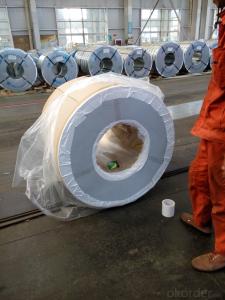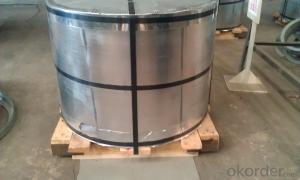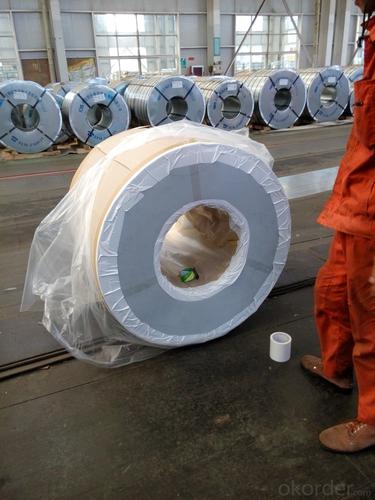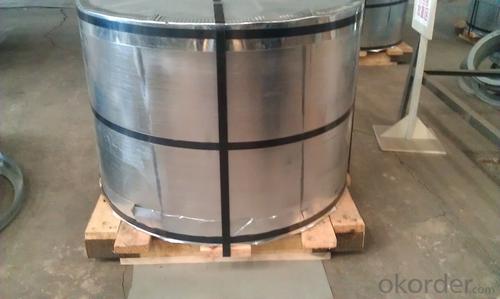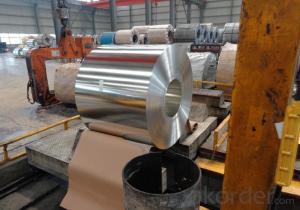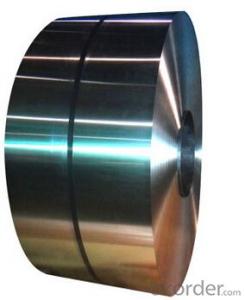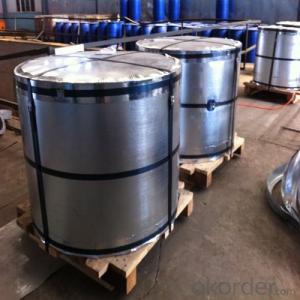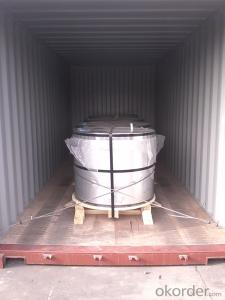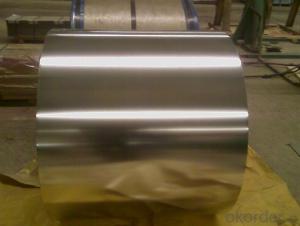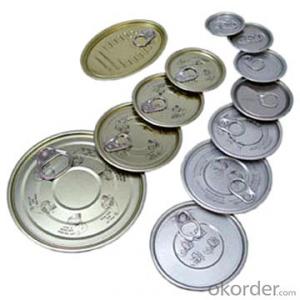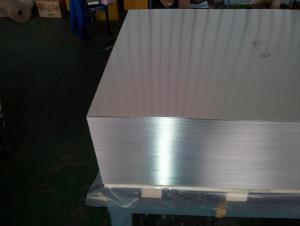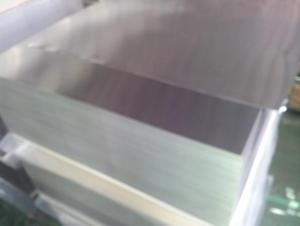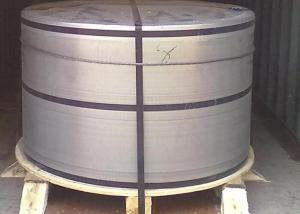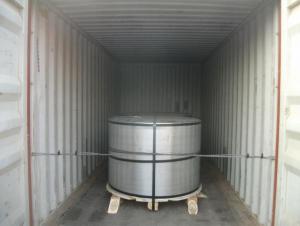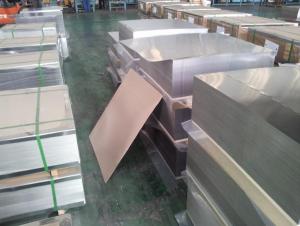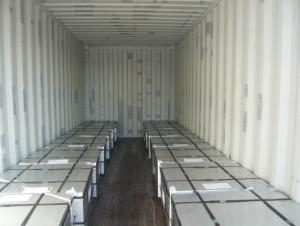Electrolytic Tinplate of Metal Package Useage Of Chemical or Industry Use
- Loading Port:
- Tianjin
- Payment Terms:
- TT OR LC
- Min Order Qty:
- 50 m.t.
- Supply Capability:
- 30000 m.t./month
OKorder Service Pledge
OKorder Financial Service
You Might Also Like
Specification
1.Structure of Electrolytic Tinplate of Metal Package Useage Of Chemical or Industry Use Description
Electrolytic Tinplate undoubtedly enjoys the pride of place as a packaging medium especially for food. It owes its unique position to its "nine layer sandwich structure", each of which contributes to its eminence as a packing material. The steel base of electrolytic tinplate provides the necessary strength and formability for can fabrication. The tin-iron alloy layer provides the bond between the steel and free tin layer. The free tin layer is not only responsible for the attractive bright finish and ease of solderability but is also non-toxic- a factor of vital importance in food packaging!
2.Main Features of the Electrolytic Tinplate of Metal Package Useage Of Chemical or Industry Use
Tinplate is also widely used for making all types of containers such as food cans, beverage cans, and artistic cans, tea cans, painting cans, chemical package cans and dry food package cans, metal printing etc. Its applications are not limited to containers; recently, electrolytic tinplate has also been used for making electrical machinery parts and many other products.
3.Electrolytic Tinplate of Metal Package Useage Of Chemical or Industry Use Images
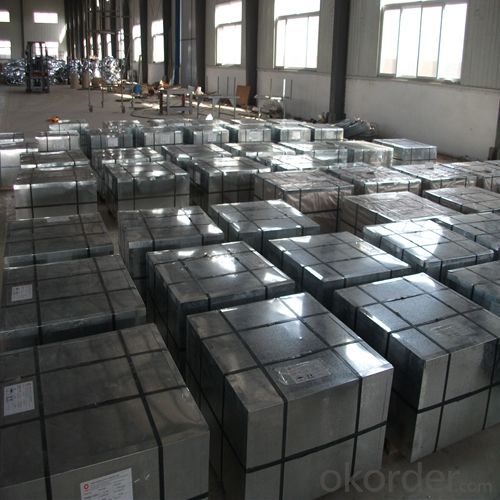
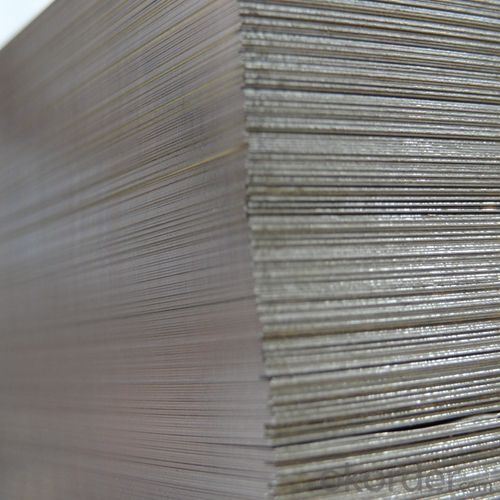
4.Electrolytic Tinplate of Metal Package Useage Of Chemical or Industry Use Specification
Specification of :
Standard: ISO 11949 -1995, GB/T2520-2000,JIS G3303,ASTM A623, BS EN 10202
Material: MR,SPCC
Thickness:0.15mm - 0.50mm
Width: 600mm -1150mm
Temper: T1-T5
Annealing: BA & CA
Coil Inner Diameter: 508mm
Weight: 6-10 tons/coil 1~1.7 tons/sheets bundle
Passivation:311
Oil: DOS
Surface: Finish,bright,stone,matte,silver
5.FAQ of Electrolytic Tinplate of Metal Package Useage Of Chemical or Industry Use
- What is tinning and how does it work?
Tinning is the process of thinly coating sheets of wrought iron or steel with tin, and the resulting product is known as tinplate. It is most often used to prevent rust.
- Do you only have prime quality tinplate?
We can supply both prime and second quality tinplate.
- Q: Can tinplate be used for promotional or gift packaging?
- Yes, tinplate can be used for promotional or gift packaging. It is a versatile material that offers durability, aesthetic appeal, and the ability to be customized with various designs and finishes. Tinplate packaging can enhance the perceived value of a product or gift, making it an excellent choice for promotional purposes.
- Q: How does tinplate compare to stainless steel in terms of properties and applications?
- Tinplate and stainless steel differ in terms of properties and applications. Tinplate is a steel sheet coated with a thin layer of tin, providing it with corrosion resistance and a shiny appearance. On the other hand, stainless steel is an alloy containing chromium, providing it with exceptional corrosion resistance and high strength. In terms of properties, stainless steel outperforms tinplate. Stainless steel offers superior corrosion resistance, even in harsh environments, making it suitable for applications where durability is crucial. It also has excellent heat resistance and can withstand high temperatures. Tinplate, although corrosion-resistant, is less durable and has a lower melting point. Regarding applications, tinplate is commonly used for food packaging, beverage cans, and other consumer products due to its excellent ability to preserve and protect the contents. The tin layer prevents the steel from coming into contact with the packaged goods, ensuring their safety and extending shelf life. Stainless steel, on the other hand, finds extensive use in industries such as construction, automotive, medical, and kitchen appliances. Its strength, corrosion resistance, and hygienic properties make it ideal for structural components, surgical instruments, cutlery, and more. Overall, while tinplate is favored for its cost-effectiveness and specific packaging applications, stainless steel offers superior properties and versatility, making it suitable for a wide range of demanding industrial and domestic applications.
- Q: What are the main challenges in tinplate coating?
- The main challenges in tinplate coating include ensuring uniform and consistent coating thickness, preventing defects such as pinholes and streaks, managing adhesion between the tin and base metal, and addressing environmental concerns related to the use of certain chemicals and waste disposal. Additionally, maintaining high production speeds while maintaining quality standards and reducing costs poses another challenge in tinplate coating.
- Q: What are the common thicknesses of tinplate used for different applications?
- The common thicknesses of tinplate used for different applications can vary, but generally range from 0.13mm to 0.49mm. However, specific thickness requirements may depend on the intended use, such as packaging, electronics, or construction.
- Q: How does tinplate perform in terms of light protection?
- Tinplate offers excellent light protection due to its opaque and reflective nature, effectively blocking out light and preventing its transmission through the material.
- Q: What are the typical lead times for tinplate production?
- The typical lead times for tinplate production can vary depending on factors such as the quantity required, complexity of the design, and the manufacturer's production capacity. However, on average, lead times for tinplate production usually range from several weeks to a few months.
- Q: What are the main differences between tinplate and tinplate laminates in terms of barrier properties?
- Tinplate and tinplate laminates differ in terms of their barrier properties. Tinplate, which is made of a single layer of tin-coated steel, offers good barrier properties against moisture and gases. It provides a reliable protective barrier for food and beverage packaging. On the other hand, tinplate laminates consist of tinplate combined with other materials, such as plastic or paper. These laminates can enhance the barrier properties of tinplate, offering additional protection against light, oxygen, and other external factors. The use of laminates allows for customized packaging solutions that cater to specific product requirements. Overall, tinplate laminates provide a higher level of barrier protection compared to plain tinplate.
- Q: How is tinplate manufactured?
- Tinplate is manufactured through a process called electroplating, where a thin layer of tin is applied onto a base metal, usually steel. The steel is first cleaned and then immersed into an electrolyte solution containing tin ions. An electric current is then passed through the solution, causing tin ions to be attracted and deposited onto the steel surface, forming a layer of tin. This tin coating provides the steel with corrosion resistance and enhances its appearance, making it suitable for various applications such as food and beverage packaging.
- Q: What are the main challenges in tinplate inventory management?
- The main challenges in tinplate inventory management include accurately forecasting demand, optimizing stock levels to avoid stockouts or excess inventory, managing the shelf life of tinplate products, coordinating with suppliers to ensure timely deliveries, and effectively tracking and organizing multiple SKUs and variants of tinplate products. Additionally, ensuring proper storage conditions and minimizing damages or wastage during handling and transportation are also significant challenges in tinplate inventory management.
- Q: Can tinplate be used for construction applications?
- Yes, tinplate can be used for construction applications. It is commonly used for roofing, cladding, and siding due to its durability, corrosion resistance, and aesthetic appeal. Additionally, tinplate's lightweight nature makes it easier to handle and install in construction projects.
Send your message to us
Electrolytic Tinplate of Metal Package Useage Of Chemical or Industry Use
- Loading Port:
- Tianjin
- Payment Terms:
- TT OR LC
- Min Order Qty:
- 50 m.t.
- Supply Capability:
- 30000 m.t./month
OKorder Service Pledge
OKorder Financial Service
Similar products
Hot products
Hot Searches
Related keywords
